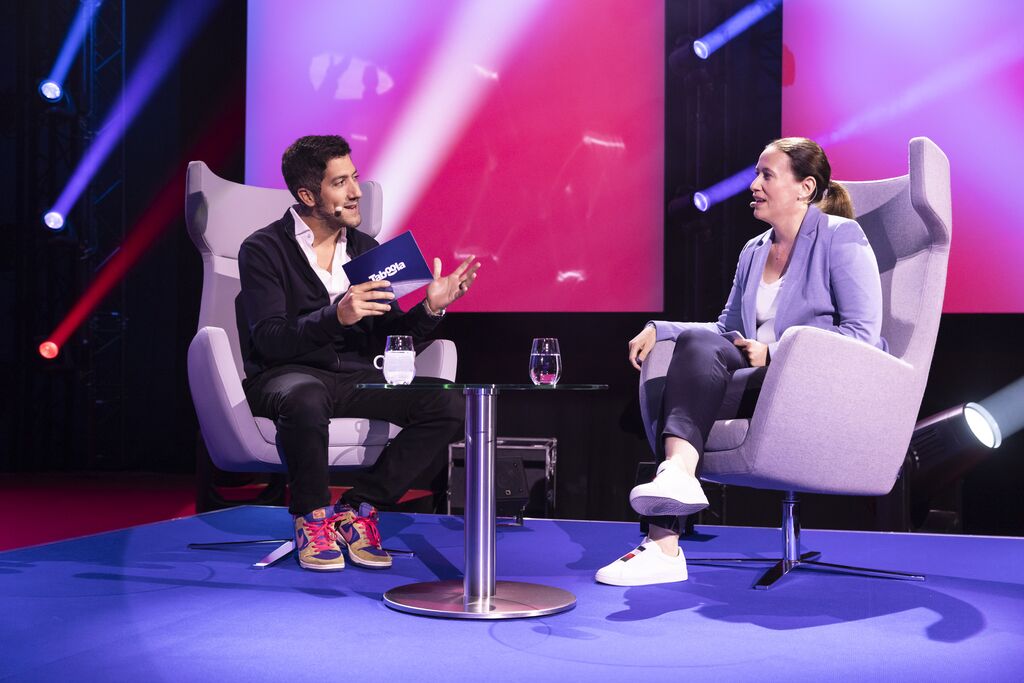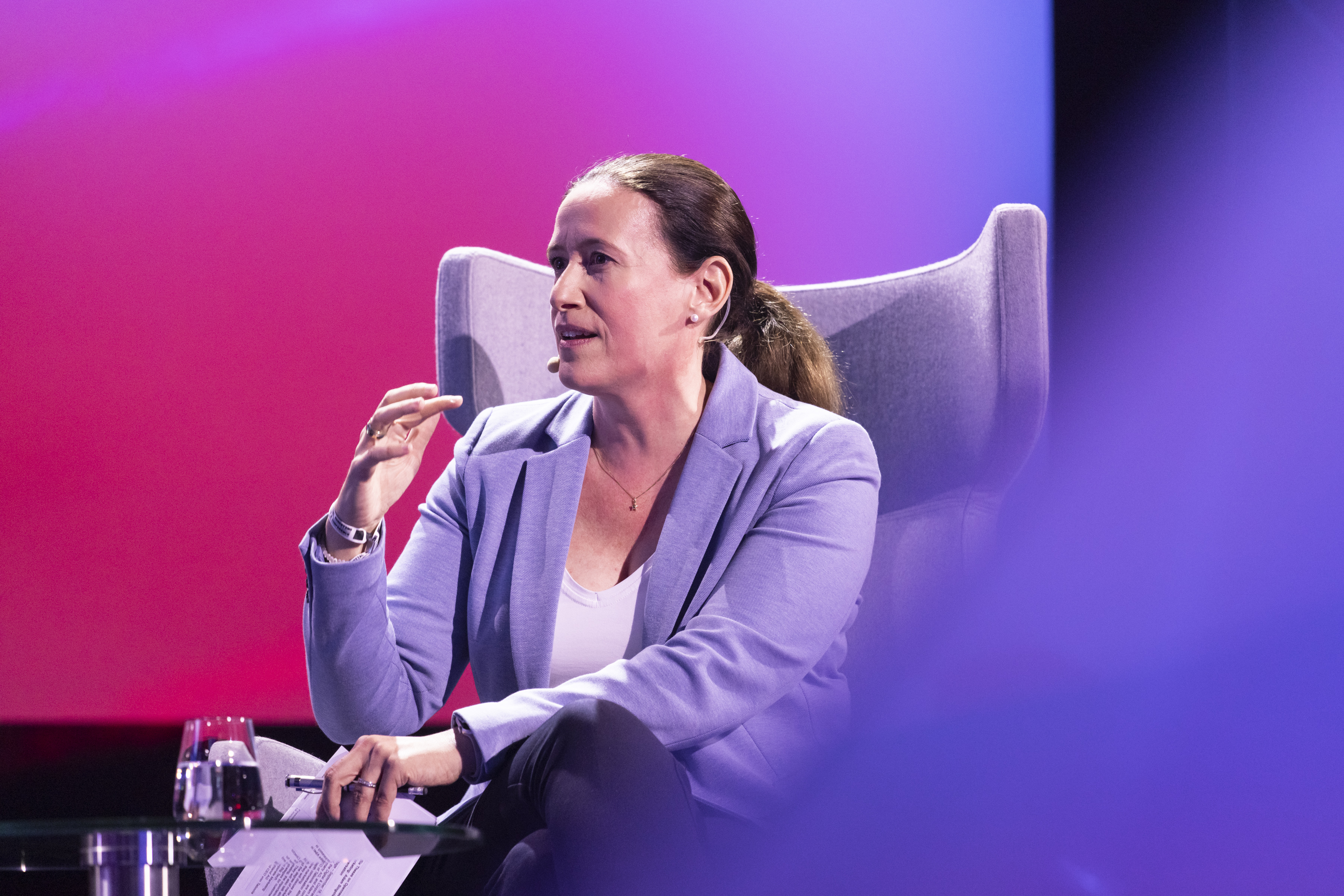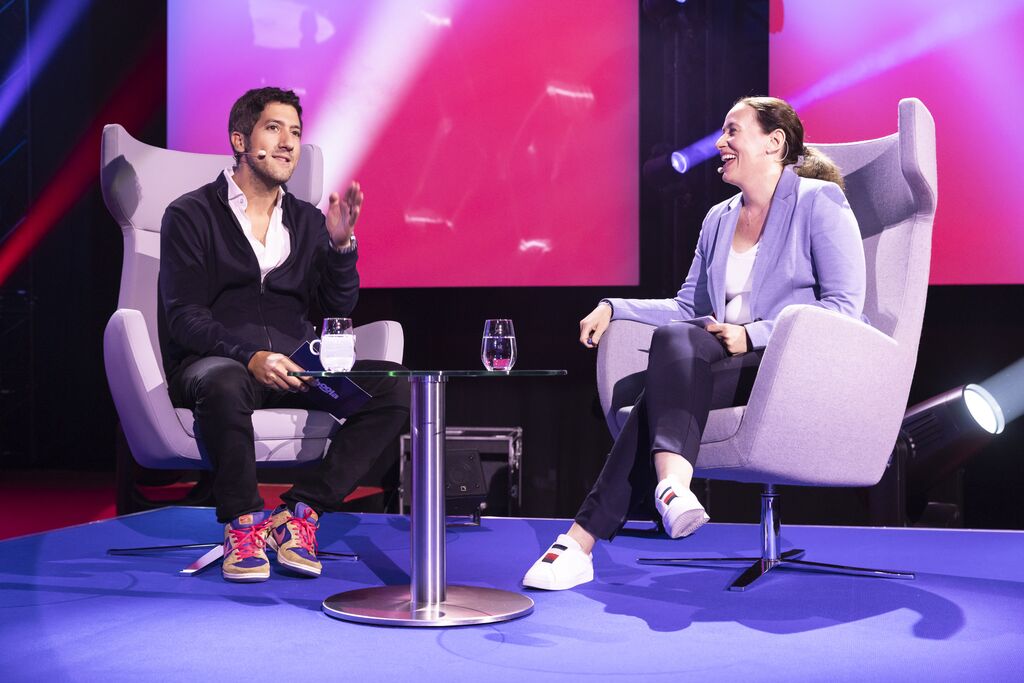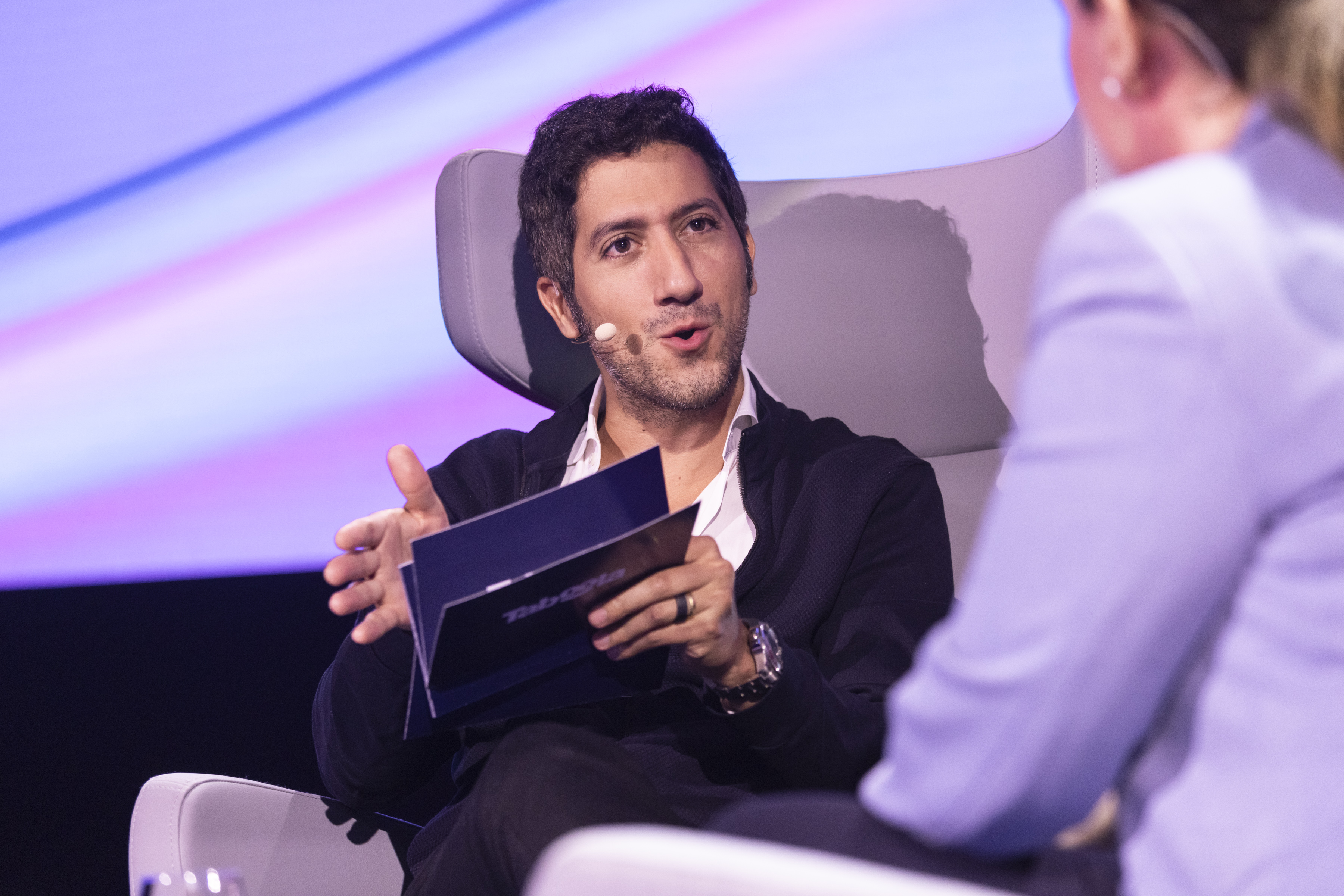© Koelnmesse
We exist in an unpredictable world that is always changing. New technologies, such as AI, have turned the ‘seeing is believing’ concept on its head, creating distrust yet simultaneously holding promise to drive company growth. Brands are being asked to develop deeper relationships with consumers, yet those consumers’ limited attention spans are often pulled in multiple directions by second and third screens.
This duality begs the question: how can brands thrive in the current environment? At this year’s DMEXCO event, a fireside chat titled “Mastering Multi-Challenges: AI, Brand Performance, and Customer Engagement” aimed to provide those answers.

Taboola’s CEO and Founder, Adam Singolda, and Maike Abel, the Digital & Corporate Marketing Director at Nestlé Germany, took the stage to discuss some of the challenges and opportunities presented by the digital age. Each brought a unique perspective—one from technology innovation and the other from consumer goods—as they discussed a range of marketing topics, including measuring the impact of marketing initiatives, improving customer experiences, and using AI in the workplace.
Read on for a taste of the highlights, or watch the entire chat below to discover more about how these two industry leaders are navigating the complexities of modern marketing.
Fewer Platforms, Better Results
Performance marketing is crucial for driving sales, but the inefficient ‘spray and pray’ approach is being replaced with strategies prioritizing effective targeting and reaching the consumer in the right place at the right time.
Adam kicked off the chat by acknowledging that the last few years have been messy and stressful due to the pandemic, a recession, high inflation, conflicts and wars, and more, all affecting consumer behaviors and, in turn, the advertising and marketing landscape. Since performance marketing is crucial for driving sales, he asked Maike how Nestlé has altered its campaign strategy to meet the moment.
Maike shared that in the past, Nestlé had been launching performance ads on multiple platforms (TikTok, Snap, Meta, and YouTube) to be everywhere all the time, but that approach fragmented the budget and led to a decrease in brand health. She realized the company needed to shift tactics and refocus on the core strategic brands, audiences, and messaging. Then, the ‘Fewer, Bigger, Better Initiative’ (fewer brands, bigger communication, and better results) was born.
In line with the initiative, Nestlé now launches more curated campaigns with only a few selected partners. This paired-down platform strategy has produced the desired results: more impactful campaigns, deeper audience connections, and significantly improved brand health.

The Fight for Consumer Attention
Because Taboola works with so many advertisers, Adam brought up a topic that he sees many clients wrestle with – how to capture consumer attention in such a messy world.
Maike said that each Nestlé brand has mapped a consumer journey to deeply understand which platforms foster the best communication and how consumers connect with the brand. She used Purina PetCare as an example, illustrating the consumer experience goes beyond feeding a cat or dog; it includes an ecosystem of relevant content and solutions such as partnering with pet health insurance.
Adam revealed that many of Taboola’s most successful clients, especially those with a direct-to-consumer model, followed a specific strategy – they focus on storytelling and interacting with consumers early on and continue to build on the initial connection during the consideration phase.
He also mentioned that brands that try to sell consumers only in the last decision-making moment are not only potentially overpaying for the customer but are failing to build a relationship – something that consumers increasingly value.

AI On the Brain
It wouldn’t be a tech conference if AI wasn’t discussed, so Adam and Maike dived into how Nestlé uses new ways of technology.
Broadly, Maike sees AI delivering solutions and making life easier – which she welcomes. Nestlé uses AI within a three-level framework: adapting or using an available license, shaping an existing tool for their needs (like creating a corporate Nestlé GPT), or developing algorithms specifically for Nestlé’s needs.
When using AI for marketing, the company is aware of potential ethical and legal issues. They have decided to not use AI for creating human faces or pets to maintain a sense of authenticity, but they might use it to generate a background for a scene. Additionally, using traditional actors keeps the company out of the legal gray area surrounding the ownership rights of AI-generated content.
Adam noted that although AI will help companies drive growth, at the end of the day, people do business with people, and companies need to demonstrate a culture and value system that aligns with consumers’ mindsets. He suggested that “maybe the true innovation of a company – more than funding and resources and all those things – is just a group of people that have a value set about what is the right thing to do and how they want to do it.”
The Safety of The Open Web
With a few minutes left, Maike asked Adam to elaborate on something he once said, “I want to be the Robin Hood on the open internet, and I want to make sure journalism thrives.”
Adam described advertising as a beautiful thing because it supports a business’s growth and gives people access to new services and products. He said journalism is the essential link because it allows the next generation to learn about products, science or technology from someone with expertise. This allows publishers to expand their connection with their readership.

He sees the open web as a balancing act that makes the world a safer place. “We can have fun on TikTok and Instagram, but we always have this place where we can feel safe, where nobody knows who we are, nobody hunts us down.” Instead, on the open web, “ads just find us, and we can just read and get curious and learn about things.”
There are many more insights and marketing tidbits to be discovered in the video. It’s well worth a watch!